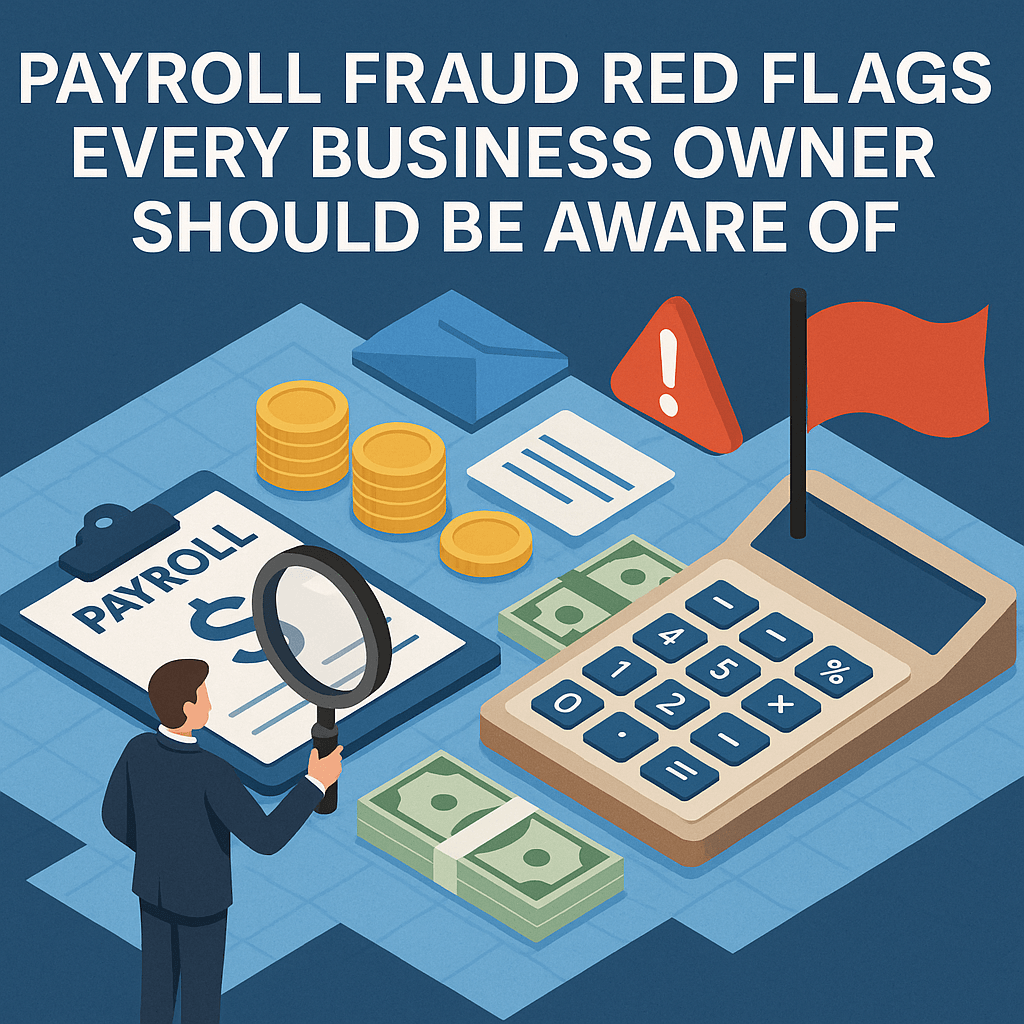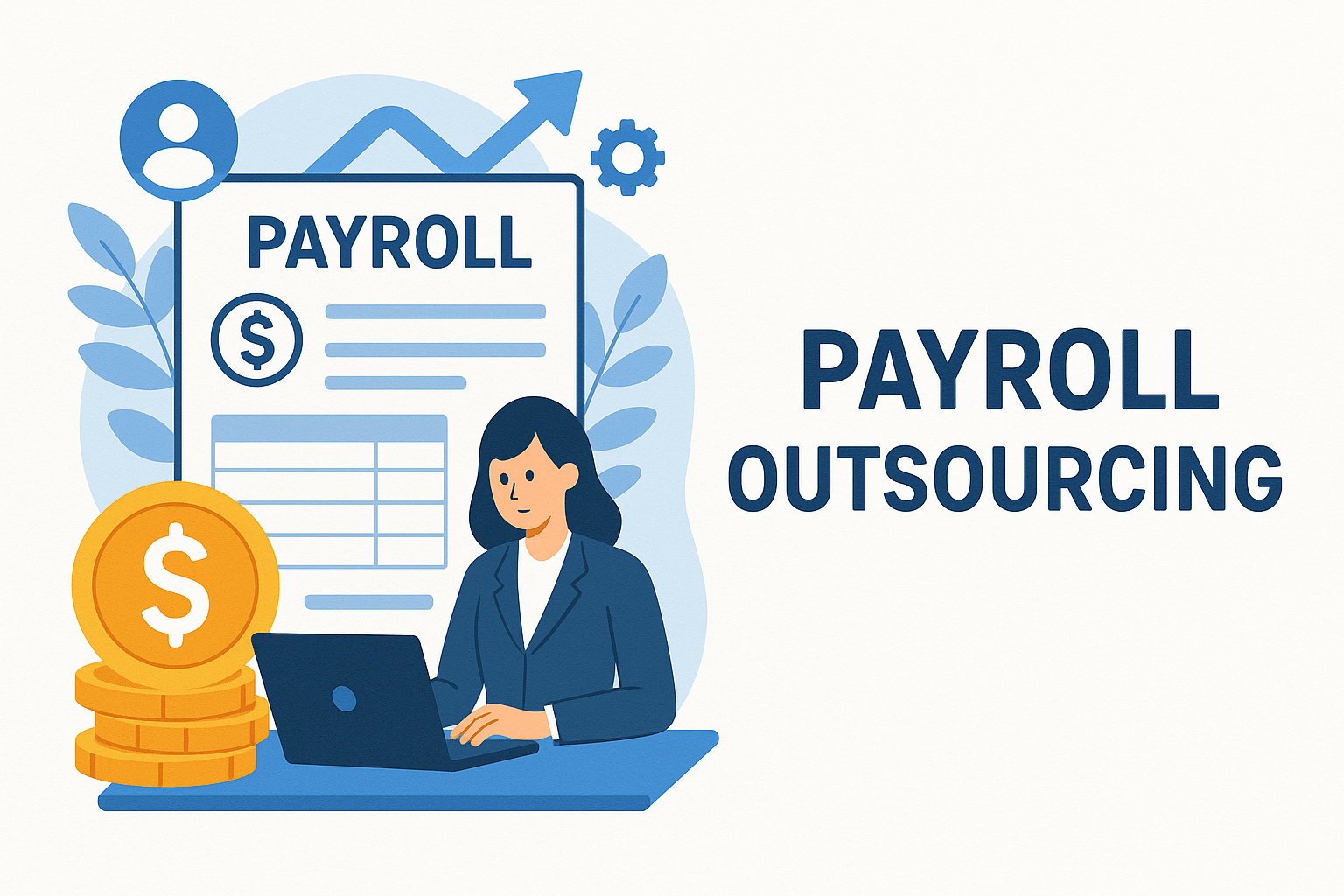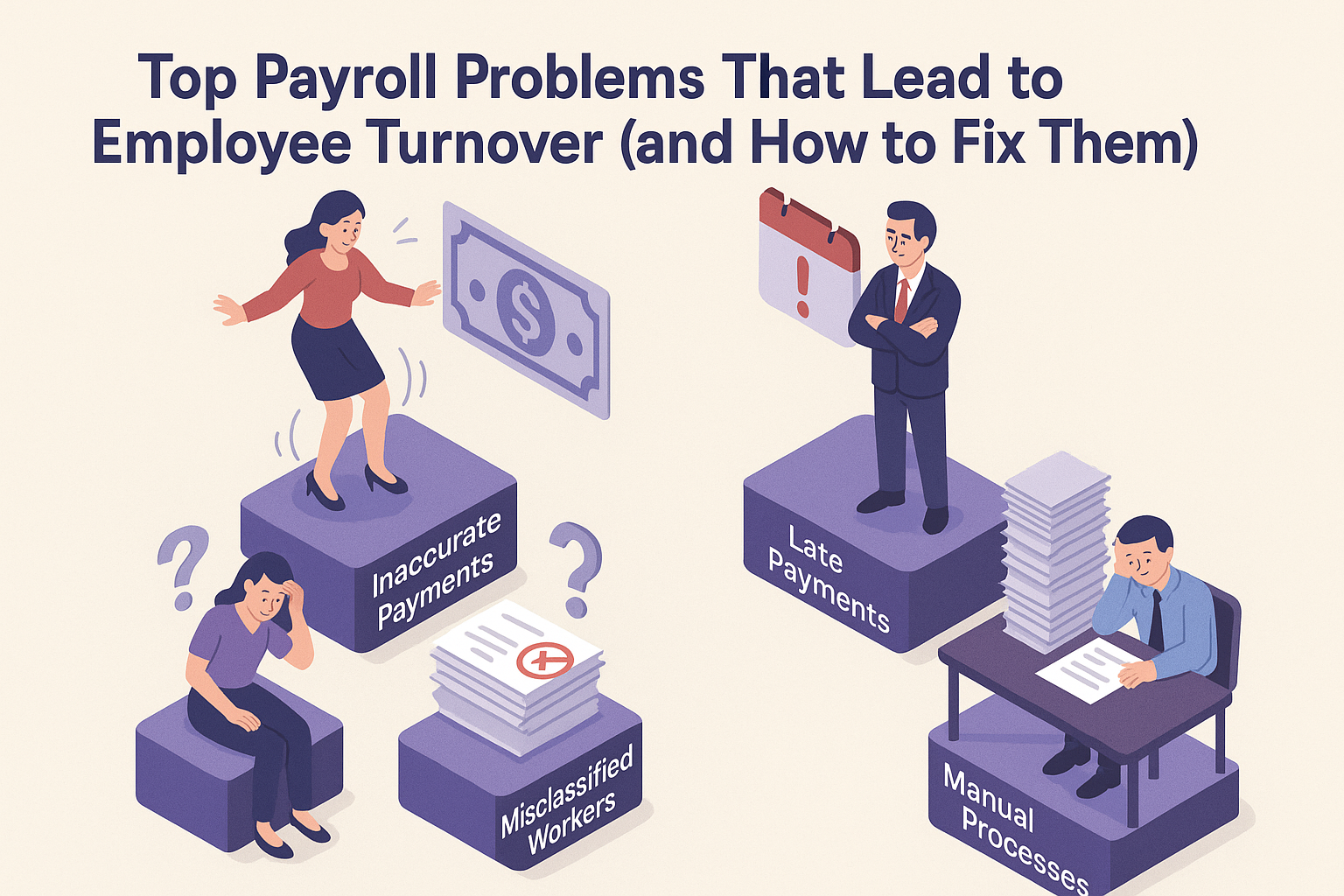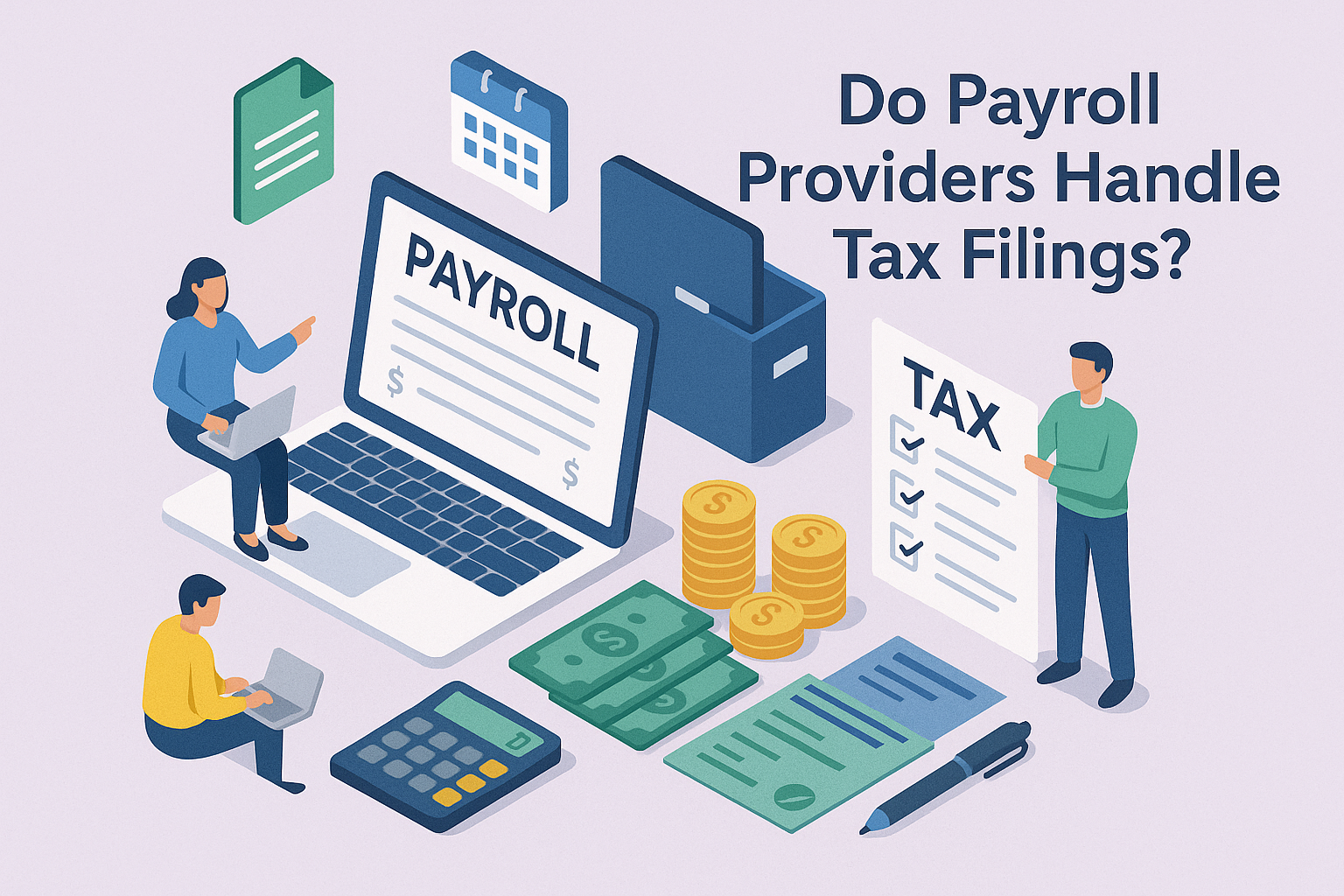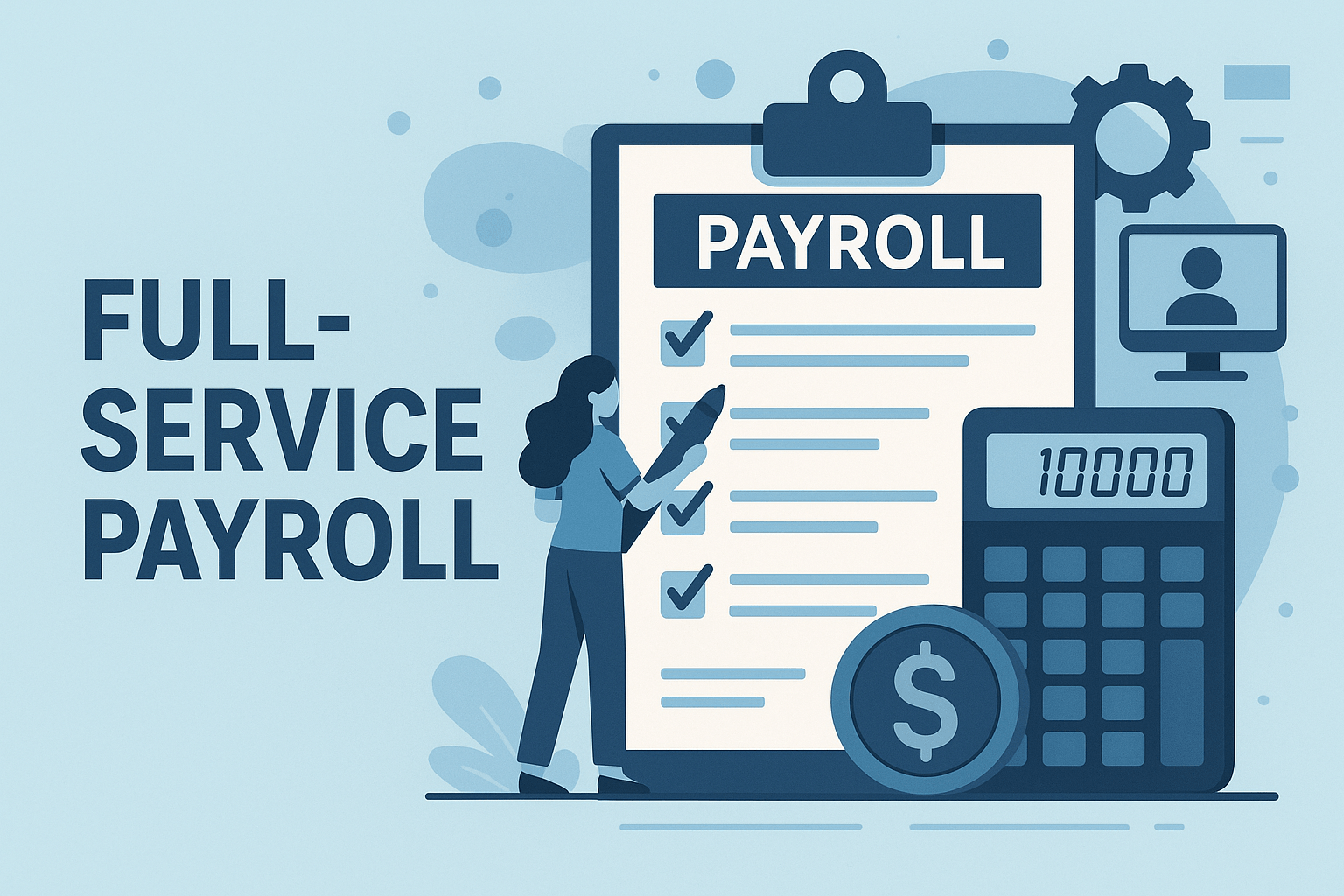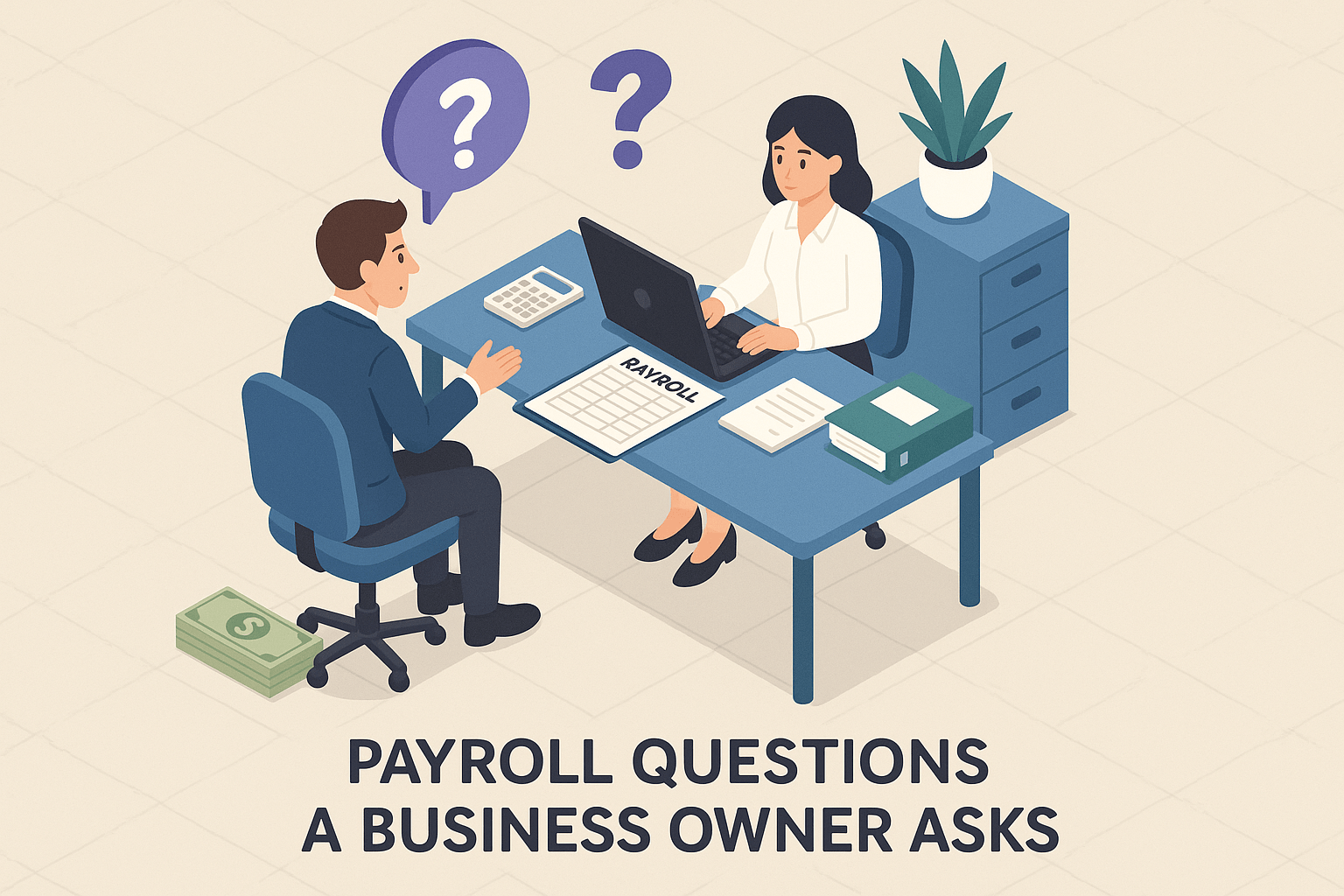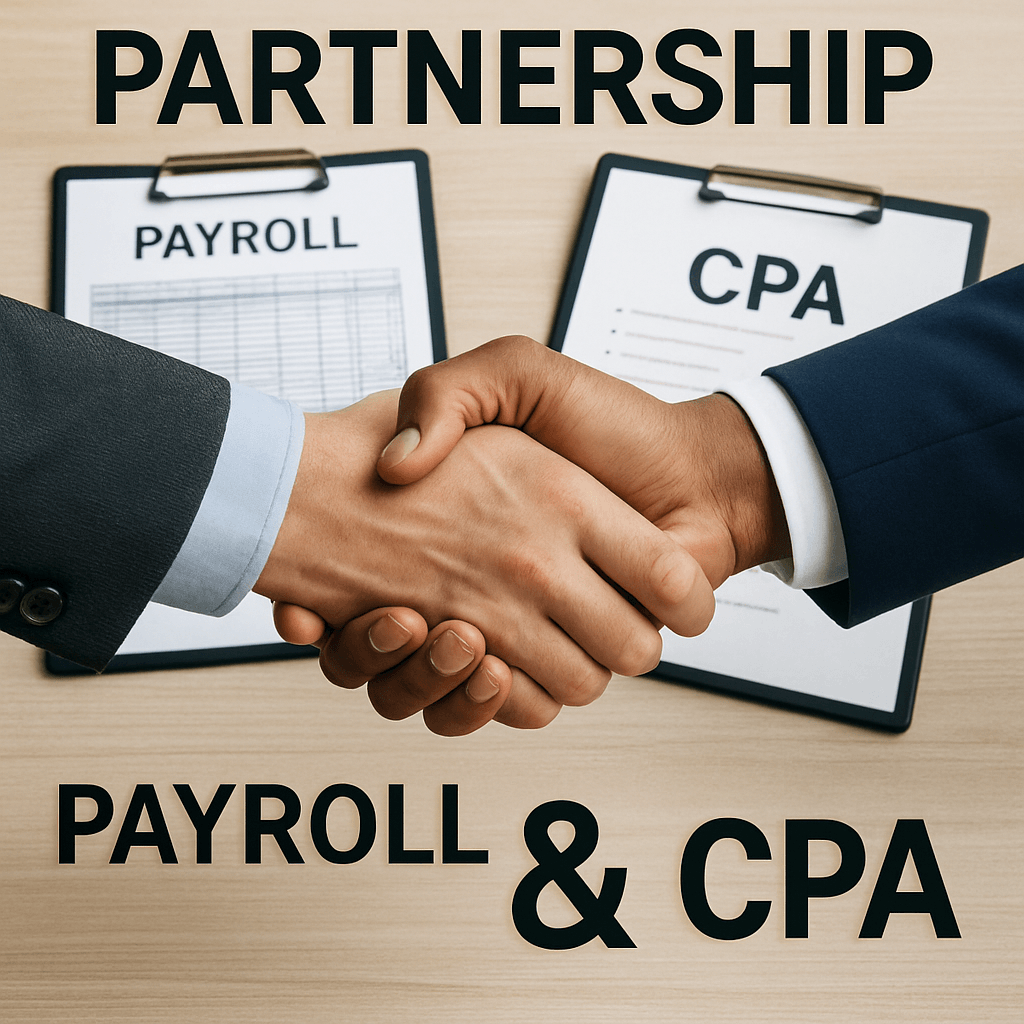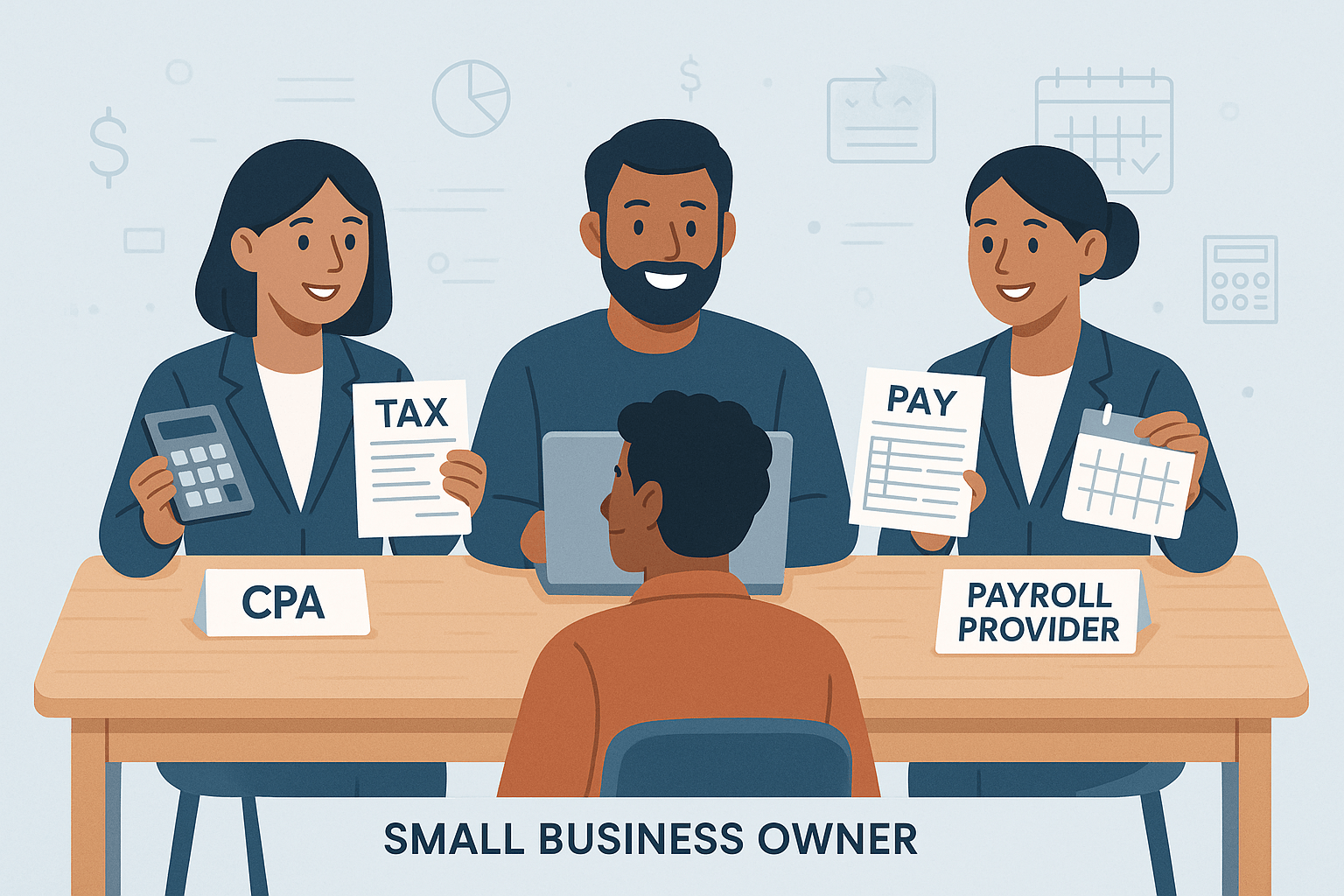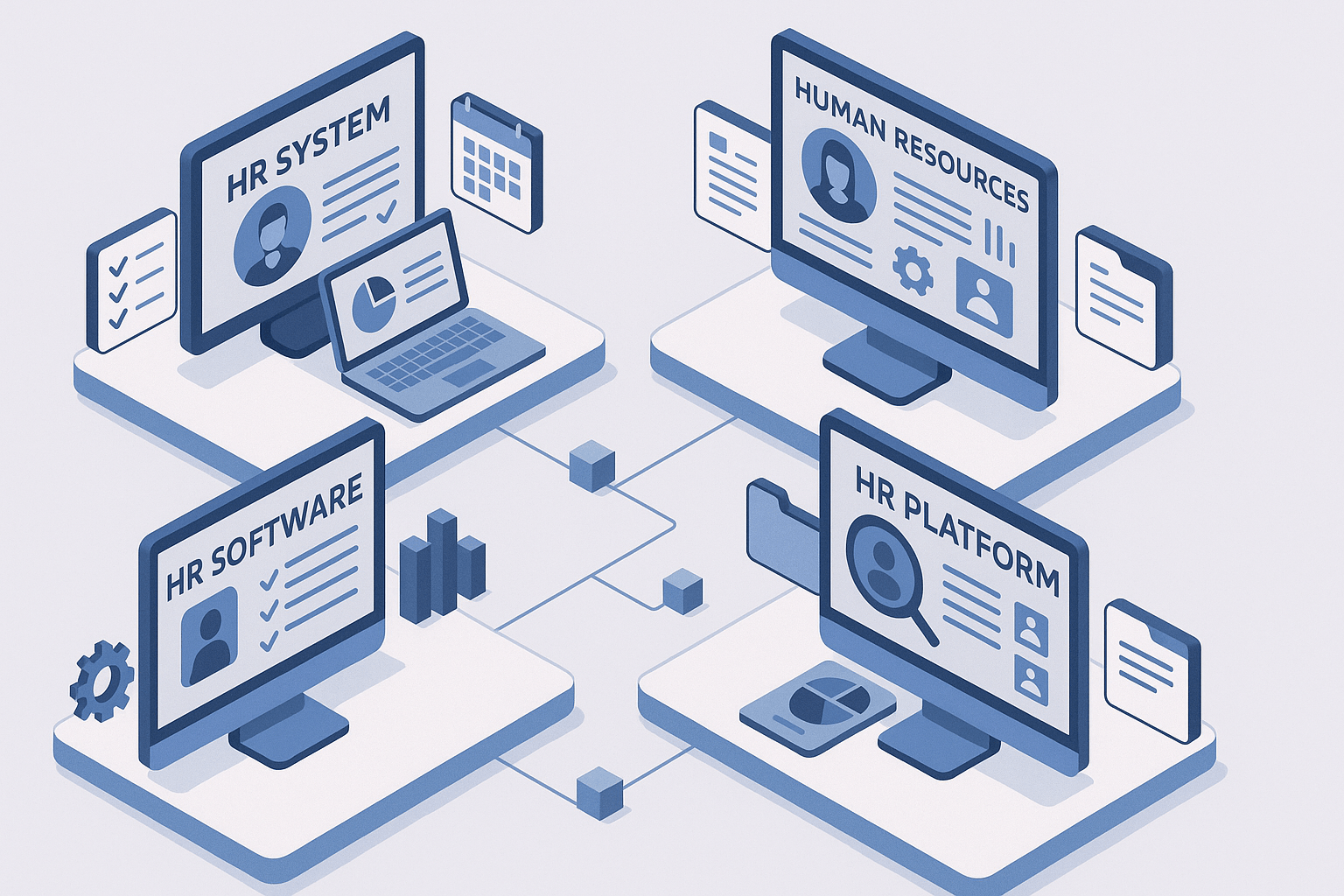National vs. Local Payroll Providers: Which is Right for Your Business?
June 2nd, 2025
10 min read
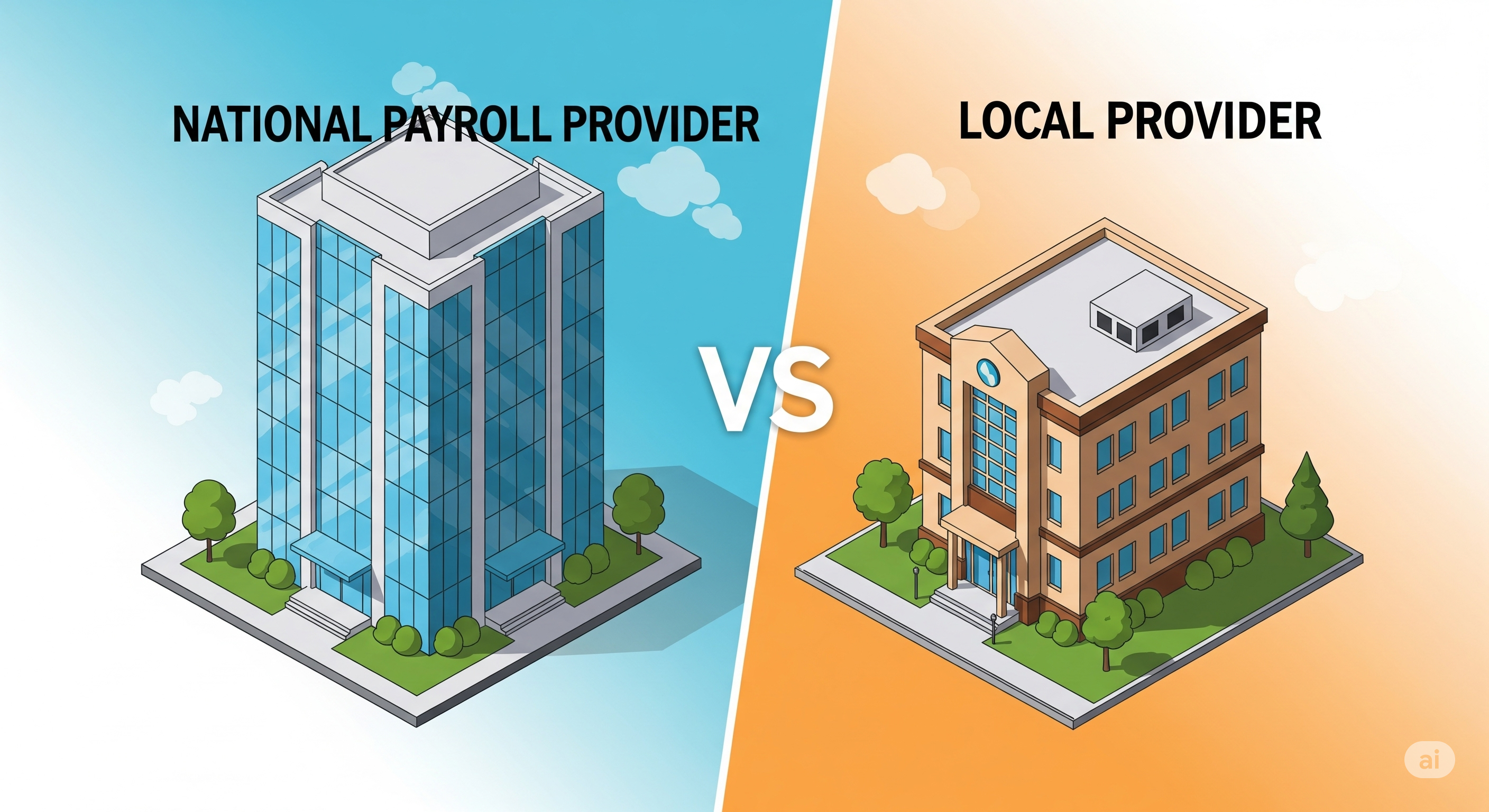
Choosing the right payroll service can feel like a complex puzzle. You know you need help managing employee payments, taxes, and all the tricky regulations that come with them, but figuring out who to trust with such an important task can be overwhelming. Will a large national company provide the support you need, or is a smaller, local provider a better fit? This is a common concern for business owners and HR managers, as picking the wrong one can lead to headaches, costly mistakes, and wasted time.
At Lift HCM, we know comparing national and local payroll providers can be daunting. That’s why we’ve simplified the process—breaking down what each offers, their pros and cons, and how to match the right option to your business’s unique needs, priorities, and peace of mind.
Table of Contents
- What Defines National Payroll Providers?
- Advantages of National Payroll Providers
- Disadvantages of National Payroll Providers
- What Defines Local Payroll Providers?
- Advantages of Local Payroll Providers
- Disadvantages of Local Payroll Providers
- The Key Differences Between National and Local Payroll Providers
- Why Selecting the Right Payroll Provider is Crucial for Your Business
- Common Mistakes Business Owners Make When Choosing Payroll Service Providers
- How to Choose the Best Payroll Provider for Your Business (in 6 Steps)
- FAQ's for National vs. Local Payroll Providers
- Finding the Right Payroll Provider for Your Business
What Defines National Payroll Providers?
In a previous article, we talked about what a payroll service provider is as well as how to choose the right one. Now, let's talk about the differences between national and local payroll service providers.
Let's start by understanding what distinguishes a national payroll provider in the vast landscape of payroll solutions. National payroll service providers are large companies that serve businesses across the entire country. They typically have extensive corporate offices, numerous employees, and robust computer systems capable of handling thousands of companies at once. Companies like ADP, Paychex, and others fall into this category.
These providers often offer a wide range of bundled features: 401(k) management, health insurance options, and employee discounts, plus advanced HR modules. They focus on efficiency and scale, serving mid‐size to enterprise businesses with hundreds to thousands of employees. While they excel at large‐scale operations and cutting‐edge cloud technology, some clients report a lack of pricing transparency and potential hidden fees.
Advantages of National Payroll Providers
- Scalability: They can easily handle large numbers of employees across multiple states, making them ideal for growing businesses. Whether you have 50 employees or 5,000+, national providers have the infrastructure to manage complex, multi‐state payroll runs.
- Extensive Features: You’ll often find comprehensive suites of services under one roof: core payroll, benefits administration, 401(k) recordkeeping, insurance options, and advanced reporting. If you want a single vendor for all HR and payroll needs, these providers deliver.
- Advanced Technology: National providers invest heavily in cloud‐based platforms, mobile apps, and self‐service portals. You gain access to robust reporting dashboards, integration with popular accounting software, and automated tax filings—tools that can save time and reduce errors.
- Standardization: Consistent processes and procedures apply across all locations. If you operate in multiple cities or states, a national provider ensures every payroll follows the same standardized workflow, simplifying compliance and reporting.
Disadvantages of National Payroll Providers
- Impersonal Service: Customer support often runs through large call centers. You may speak with a different representative each time, which means repeating your situation and waiting longer for issue resolution.
- Lack of Local Expertise: While they maintain big compliance teams, national providers can sometimes miss city‐ or county‐specific rules. If your business has unique local filings or ordinances, you might find gaps in their knowledge.
- Complex Pricing: Many national vendors advertise a low base rate (for example, ADP RUN starts around $79 per month + $4 per employee), but additional services often carry extra fees. Clients frequently report surprise charges for tax filings, garnishments, or service add‐ons.
- Contractual Complexity: Contracts can be long‐term, with automatic renewals and price increases at renewal. Exiting a contract early may trigger termination fees, so it’s crucial to read the fine print before signing.
What Defines Local Payroll Providers?
Local payroll service providers are smaller companies focusing on businesses within a specific region—often a city, state, or neighboring states. They typically have fewer clients, allowing them to dedicate more personalized attention and hands-on support to each business.
Many local providers collaborate with established payroll platforms (like iSolved, UKG Ready, or QuickBooks Payroll) to deliver cloud-based capabilities. They layer in-depth local and state regulatory expertise, plus direct access to representatives who understand your market’s unique requirements.
Local providers usually target small to mid-size companies—up to several hundred employees—offering transparent pricing and often additional accounting or HR consulting services beyond core payroll.
Advantages of Local Payroll Providers
- Personalized Service: You work with a dedicated account manager who knows your company by name. That means faster response times and fewer hold times. Many local vendors also offer on-site training and regular check-ins.
- Local Expertise: Deep knowledge of state and municipal regulations ensures you stay compliant with local tax filings, wage ordinances, and licensing requirements. If a new city payroll tax emerges, your local partner learns about it immediately.
- Transparent Pricing: Local vendors tend to quote a flat monthly fee plus a per-employee charge, with any extras—like year-end tax forms or W-2 printing—clearly disclosed upfront. Few hidden fees mean your invoices are easier to predict.
- Stronger Relationships: Closer collaboration comes naturally when your provider is right down the street. You can meet face to face, build trust, and leverage that relationship if an urgent issue arises.
Disadvantages of Local Payroll Providers
- Limited Scalability: If your business grows rapidly or expands into multiple states, a local provider may struggle to keep up. They often lack the nationwide infrastructure to process thousands of employees in different jurisdictions.
- Fewer Features: While many local providers rely on solid platforms like iSolved or UKG, they might not include every advanced module (e-Verify, robust time analytics, or extensive benefits marketplaces) unless you pay extra or upgrade.
- Reliance on Software Platforms: A local provider usually sticks with a single software solution. If your business needs a specialized integration or a custom workflow, it may be limited by the platform’s capabilities.
- Resource Constraints: Smaller teams mean fewer specialists. During peak compliance seasons, like when multiple states update wage laws, a local provider might be slower to publish software updates or interpret new regulations.
The Key Differences Between National and Local Payroll Providers
Below is a table summarizing the key differences between national payroll services and local payroll providers. This comparison helps illustrate the trade-offs and benefits of each, making it easier to see which type aligns best with your business’s priorities when choosing a payroll provider.
Key Differences Between National and Local Payroll Providers
|
Feature |
National Payroll Providers |
Local Payroll Providers |
|
Customer Service |
Call centers, different reps each time, longer wait times |
Dedicated account managers, direct-dial access, faster response |
|
Local Law Expertise |
Strong federal focus, may miss state/local nuances |
Deep knowledge of regional payroll laws and requirements |
|
Pricing |
Base fees can be low, but add-ons often have hidden costs |
Transparent pricing, fewer surprise costs, flexible plans |
|
Features |
Extensive suite, often bundled (e.g., 401(k), insurance, discounts); advanced HR modules |
Tailored, flexible; may offer additional accounting or HR consulting services beyond payroll |
|
Best For |
Multi-state operations, large/mid-sized businesses (100–5,000+ employees) needing scalability |
Local, small-to-midsize firms (up to a few hundred employees) valuing personalized service and local expertise |
|
Contract Terms |
Can be difficult to exit; prices may increase after the initial period; often, annual contracts |
Rely on local reputation, so practices avoid harming client relationships; often, more flexible terms |
|
Implementation |
A standardized process may feel impersonal |
Customized onboarding, hands-on setup assistance |
|
Technology |
Cutting-edge platforms, mobile apps, and self-service portals |
Modern cloud-based systems, user-friendly interfaces |
|
Scalability |
Handles rapid growth, multi-location support |
Good for steady growth, may need a transition for major expansion |
Why Selecting the Right Payroll Provider is Crucial for Your Business
The decision to partner with a national payroll service or a local payroll provider extends far beyond simply processing paychecks. It profoundly impacts numerous facets of your business, influencing everything from employee satisfaction to the time and financial resources allocated to administrative tasks.
Choosing the ideal payroll provider can effectively mitigate these pain points. A reliable payroll partner ensures:
-
Accuracy: Your employees are paid correctly and consistently, fostering trust and boosting their satisfaction.
-
Compliance: You remain fully compliant with federal, state, and local tax laws, thereby avoiding costly penalties and legal complications.
-
Efficiency: Automated processes liberate your HR team or office manager from time-consuming manual tasks, allowing them to concentrate on more strategic initiatives.
-
Peace of Mind: You can confidently delegate payroll complexities to experts, freeing you to focus on expanding your business.
📉 Did You Know? Studies show that outsourcing payroll can reliably reduce compliance errors in your business by 36% to 40%, potentially reaching up to 60% with automation, leading to fewer penalties and greater peace of mind.
Common Mistakes Business Owners Make When Choosing Payroll Service Providers
Many small and midsize businesses make common mistakes when choosing a payroll provider. It’s easy to rush the decision or get distracted by the details, but knowing the most frequent pitfalls can help you avoid them.
1: Focusing Only on the Lowest Payroll Service Costs
The cheapest provider isn’t always the best. Some businesses advertise low base rates (for example, ADP RUN’s $79 per month + $4 per employee) but tack on fees for everything: direct deposits, garnishments, year-end tax filings, and more. Always request a detailed fee schedule and ask what’s included versus add-ons.
2: Ignoring Local and State Payroll Compliance Needs
National providers excel at federal tax rules, but they sometimes miss nuanced local requirements, like city payroll taxes, specific wage ordinances, or unique municipal licenses. If you rely solely on a national platform, you may pay penalties for overlooked local filings.
3: Underestimating the Value of Customer Service
When you call a large national provider, you may reach a new representative each time. Explaining your business repeatedly wastes time. Paychex’s retention rate hovers around 84%, compared to the industry average of about 90%, suggesting that service gaps can drive clients away.
4: Believing "One Size Fits All" in Payroll Solutions
National payroll systems often come loaded with features—background checks, benefits, time and attendance, advanced reporting—that small businesses don’t need or find confusing. Conversely, local providers focus on the essentials for regionally focused companies, but they may struggle when your business grows beyond a few hundred employees.
5: Not Understanding Payroll Service Contracts
Always review contract length, renewal terms, and cancellation policies. Some national providers lock you into multi-year agreements with automatic price hikes at renewal and steep early termination fees. Local providers often offer month-to-month or more flexible contracts, but it’s still wise to confirm their cancellation notice period.
How to Choose the Best Payroll Provider for Your Business (in 6 Steps)
Selecting from the many payroll companies requires a systematic approach:
Step 1: Assess Your Payroll Processing Needs
- Company size: How many employees now, and what are your 2–3 year projections?
- Geographic scope: Single state or multi-state?
- Payroll complexity: Multiple pay schedules, contractors, union employees?
- Integration needs: Do you need seamless connections with accounting software (QuickBooks, Xero) or an ATS?
- Budget: What’s a realistic monthly payroll services spend for your bottom line?
Step 2: Prioritize Must-Have Features
- Core payroll processing: Direct deposit, pay stubs, tax calculations.
- Tax services: Automatic federal, state, and local tax filing; year-end forms (W-2s, 1099s).
- Employee self-service: Online pay stub access, benefits enrollment, and personal profile updates.
- Time tracking integration: If your team clocks in/out, choose a provider with native time and attendance or seamless third-party integration.
- Benefits administration: Health insurance, retirement plan enrollment, COBRA management.
- Reporting and analytics: Custom reports, audit trails, headcount, and labor cost analyses.
Step 3: Research Potential Payroll Providers
- Create a shortlist of 3–5 companies that match your needs.
-
National options: ADP, Paychex, Gusto, QuickBooks Payroll.
-
Local options: Search “[Your City] payroll services” and review regional providers.
-
- Read reviews (G2, Capterra) and request references from similar businesses.
- Test responsiveness: Call each provider with basic questions and note how quickly and thoroughly they respond.
Step 4: Compare Payroll Pricing Models
Obtain detailed quotes that include:
-
Base monthly fees (e.g., $79 for ADP, $39 for smaller Paychex plans).
-
Per-employee charges (e.g., $4/employee for ADP, $5 for Paychex).
-
Setup and implementation costs.
-
Additional feature costs (time tracking, benefits admin, garnishments, year-end filings).
-
Year-end processing fees (some vendors charge extra for W-2 printing or 1099 e-filing).
-
Potential price increases upon renewal.
Step 5: Evaluate Customer Support Quality
- Test responsiveness by asking detailed questions before signing up.
- Ask about account management: Will you have a dedicated rep or call center support?
- Inquire about support hours and methods: Phone, chat, email, 24/7 availability?
- Request a demo to assess ease of use and whether the interface feels intuitive.
Step 6: Verify Compliance Expertise
- Ensure your chosen provider handles all federal, state, and local tax requirements in your area.
- Ask specifically: “How do you keep up with local payroll tax changes in [Your City/County]?”
- If you’re in a highly regulated industry (construction prevailing wage, restaurants with tip reporting, or a unionized workforce), confirm they understand those niche regulations.
- Check how often they release software updates when laws change.
FAQ's for National vs. Local Payroll Providers
What's the main difference between national and local payroll providers? National payroll providers are large companies that serve businesses across the country with standardized services, technology platforms, and pricing structures. Examples include ADP, Paychex, and Gusto. Local payroll providers are smaller, regional companies that typically offer more personalized service and may have deeper knowledge of local tax laws and regulations specific to your area.
Which option is more cost-effective for small businesses? Local providers often offer more competitive pricing for small businesses, especially those with fewer than 50 employees. They have lower overhead costs and can provide customized pricing. National providers may have higher base costs but offer economies of scale and bundled services that can be cost-effective as you grow.
Which is better for compliance and tax management? National providers generally have more comprehensive compliance capabilities, especially for businesses operating in multiple states. They invest heavily in staying current with federal and state tax law changes. Local providers may have superior knowledge of specific local regulations and municipal tax requirements that national companies might overlook.
What about customer service quality? Local providers usually offer more personalized, relationship-based customer service with shorter wait times and direct access to knowledgeable staff. National providers may have longer hold times and less personalized service, but they offer 24/7 support and multiple communication channels.
Which option is better for growing businesses? National providers are typically better suited for rapidly growing businesses, especially those planning to expand across state lines. They have the infrastructure to handle increased complexity and employee counts. Local providers may struggle to scale with significant growth, but can be excellent partners for steady, modest growth within a region.
What industries or business types work best with each option?
- Local providers shine for businesses with unique local requirements:
-
Construction firms dealing with prevailing wage laws.
-
Restaurants with complex tip reporting and local health department rules.
-
Companies in areas with specific municipal payroll taxes or licensing.
-
- National providers are ideal for:
-
Franchises or multi-location retailers.
-
Companies planning rapid expansion or frequent acquisitions.
-
Industries requiring advanced HR tech (custom reporting, integrated talent management).
-
How should contract terms and flexibility factor into the decision? Local providers often offer more flexible contract terms and can customize services to your specific needs. National providers typically have standardized contracts with less flexibility but may offer more predictable pricing and service levels. Consider your need for customization versus standardization.
What questions should I ask potential payroll providers?
- “What is your experience with businesses my size and in my industry?”
- “How do you handle tax compliance in my specific location (city, county, state)?”
- “Which technology features do you offer (mobile app, self-service, reporting)?”
- “What are your customer service hours and average response times?”
- “Can you provide references from similar businesses?”
- “What are your implementation and ongoing costs?”
- “How do you ensure data security and backup?”
Can I switch providers if my choice doesn't work out?
Yes—but switching requires careful planning:
-
Exporting year-to-date payroll data and tax deposits.
-
Coordinating W-2 and 1099 production.
-
Verifying any remaining tax filings.
It’s far easier to choose the right provider upfront than to switch later. If you do change, start planning 30–60 days before your next payroll run.
What's the bottom line for making this decision?
- Choose a national provider if you value advanced technology, plan to grow significantly, operate in multiple states, or need 24/7 support.
- Choose a local provider if you prioritize personalized service, have unique local compliance needs, want transparent pricing, or prefer building close relationships.
Consider your current size, growth plans, and which factors—cost, service, or compliance expertise—matter most to your business.
Finding the Right Payroll Provider for Your Business
In the past, choosing between national and local payroll providers felt like a guessing game, leaving you to juggle compliance worries, hidden fees, and inconsistent service.
Today, you’re armed with the knowledge to weigh national scalability against local personal touch, ensuring you make an informed decision. By finding the right payroll partner, you’re setting your business up for success—happier employees, fewer compliance risks, and more time to focus on growth.
At Lift HCM, we combine the power of modern cloud-based tools with decades of payroll expertise and a commitment to personal support. Ready to partner with a payroll expert who truly understands your business? Contact Lift HCM today for a personalized consultation and discover how we can help you achieve accuracy, compliance, and peace of mind.
Caitlin Kapolas is a results-driven professional with a strong background in account management and retail. She is dedicated to improving client experiences and building lasting relationships. Caitlin excels in identifying client needs, resolving issues, and implementing customized solutions that drive value. Her effective communication skills ensure high client satisfaction and loyalty, making her a trusted advisor and partner in meeting client needs with precision and professionalism.



.png?width=1536&height=1024&name=Create%20a%20background%20that%20reads%2c%20How%20Long%20to%20Keep%20P%20(1).png)



